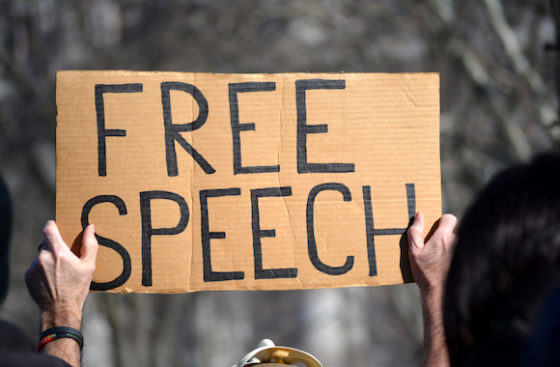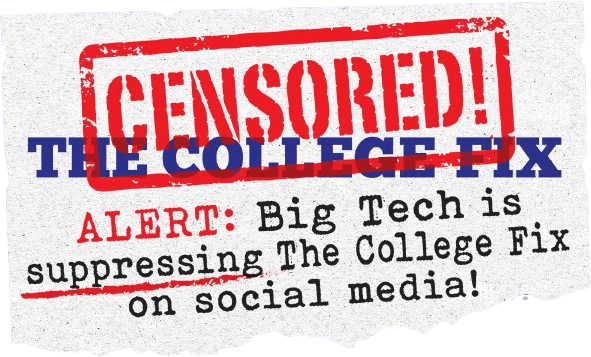Part of the school’s free speech project
The University of California last week launched the first edition of Speech Spotlight, a campus First Amendment-focused journal published as part of the school’s National Center for Free Speech and Civic Engagement.
Inside Higher Ed reported on the new publication, which is meant to “help members of higher education communities gain new insights into speech and civic engagement-related issues on university and college campuses.”
The initial edition focuses on “bias response teams,” which have proliferated on campuses in recent years. Speech Spotlight says these groups are typically composed of “administrators, staff and students” and are meant to “respond quickly to complaints in order to support those who feel aggrieved by particular incidences of conduct or speech and either to counsel them directly or to suggest campus resources that can provide assistance.”
The journal notes the various complaints associated with the teams, and cites a Wall Street Journal column written by College Fix investigative reporter Christian Schneider:
Despite their lack of disciplinary authority, BRTs have been accused of acting as speech police and turning campuses into miniature surveillance states. Critics argue that, even without the specter of punishment, the existence of the reporting structure can lead to self-censorship – students and other campus constituents refraining from expressing themselves, afraid of being reported for saying something that might be offensive.
Others assert these reporting systems encourage hyper-sensitivity by stoking a fear of being reported. A recent article in the Wall Street Journal highlighted the following example to make this point: A male student at University of Utah was joking with his friends in the library and complained that his computer battery was dying. His friend gave him a power cord which turned out to be incompatible with his computer. When the friend said to jam the cord into the power socket anyway, the male student whispered loudly, “That’s rape. I’m not raping my computer.” A female student overheard and filed a complaint.
Complaints are not always about student conduct; they can concern any campus community member. In one incident report filed, a 22-year-old female student reported a professor for assigning too many classic works on economics written by men. She claimed the selections created a “hostile learning environment.”
Both of the examples from the University of Utah cited by the journal were first reported by The College Fix.
The journal argues that “the extent to which a BRT can be helpful or damaging depends greatly upon a number of factors including the particular circumstances of a university’s climate, as well as the responsibilities and membership of the team.”
MORE: Making jokes at Portland State gets you reported to its bias response team
IMAGE: Christopher Penler / Shutterstock.com


